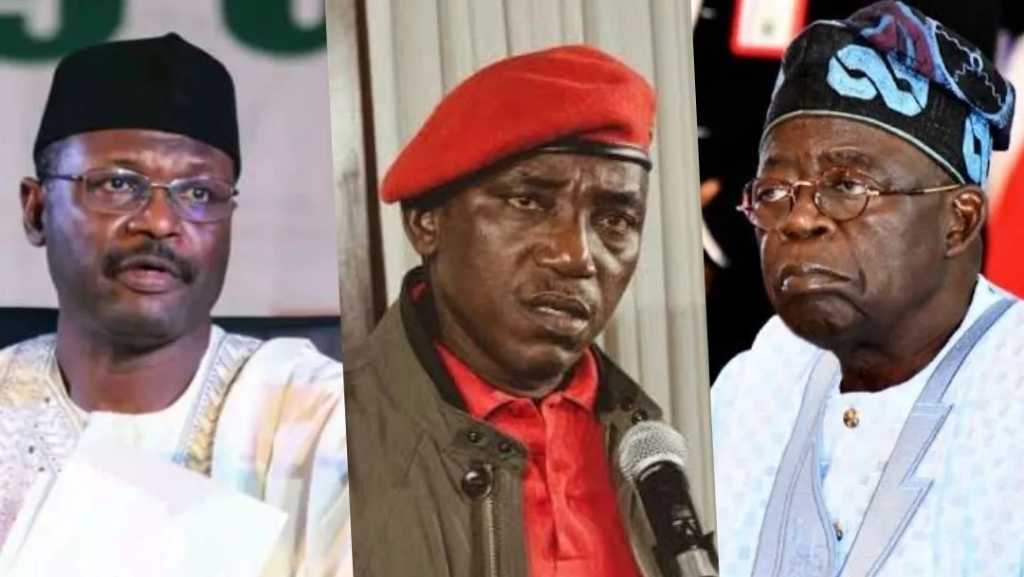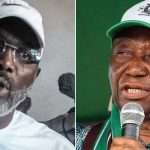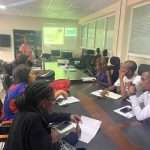Former sports minister, Solomon Dalung, said that the ruling of the Supreme Court on the disputes from the 2023 presidential election set a crucial precedent in Nigeria’s electoral framework, which puts clandestine relationships between politicians and chiefs of the Independent National Electoral Commission (INEC) as top requirement to win elections over the choice of electorates and popular democratic participation.
Mr Dalung, who served under former President Muhammadu Buhari between 2015 and 2019, said people who participate in elections without “befriending” the electoral commission’s chairman may not get justice.
“I’m busy trying to study and I have been advising those who are interested in election to campaign in INEC offices, try to befriend Professor Mahmoud because anything outside this you are not going to get justice,” he said.
This position, Mr Dalung argues, has far-reaching implications for the integrity of the electoral process in ways that could potentially impede popular democracy in the country’s governance and political system.
Mr Dalung stated that the October 26 ruling, which affirmed President Bola Tinubu’s administration, has “reconfigured democracy.”
“After the 2023 elections and the fireworks in the Supreme Court, of course, I am armed with the new jurisprudence of election in Nigeria with the Supreme Court laid to rest by reconfiguring democracy,” Mr Dalung said while addressing journalists at an event organised by the Hague Institute for Innovative Law recently in Abuja.
He said that the ruling has granted significant policy and operational powers to the electoral body, which emphasizes INEC’s power to establish rules for the conduct of elections and, in convenient instances, fraudulently overturn the rules mid-process if the results are perceived to be unfavorable to certain interests.
“With that landmark judgement, election in Nigeria now means INEC. So, if you want to contest elections in Nigeria, you have to lobby INEC, you have to go to INEC. That is the decision of the Supreme Court. That INEC, even if they make bye-laws regulating elections, they will jettison it even at midnight and declare anybody and you cannot hold them accountable,” he said. “I think politicians should study the judgement and understand that there is a radical departure from what is called elections in Nigeria.”
Mr Dalung’s remarks align with those of other prominent figures who have expressed criticism regarding the conduct and outcomes of the 2023 elections. A common point of contention has been the deviation by the Independent National Electoral Commission (INEC) from its initially stipulated rules and procedures for the polls.
Key opposition parties, particularly the Peoples Democratic Party (PDP) and the Labour Party, contended during the tribunal proceedings that INEC had outlined procedures, including the electronic transmission of results but refused to follow it, blindsiding some political parties and the majority of the electorates.
However, the Court of Appeal presidential election petition tribunal, with its decision upheld by the Supreme Court, maintained that the current electoral laws in the country do not mandate electronic transmission of results.
Credits: barristersNG



